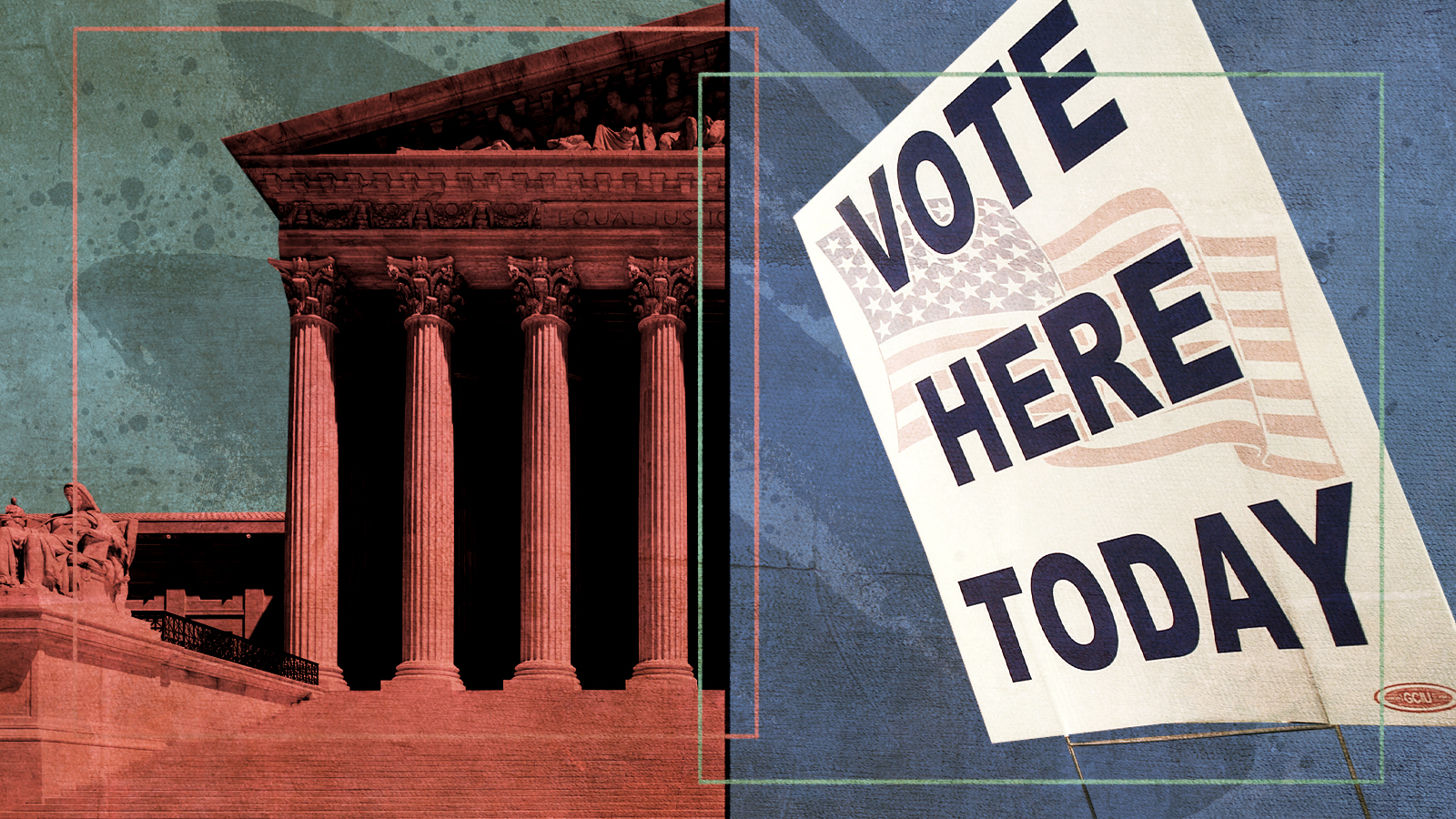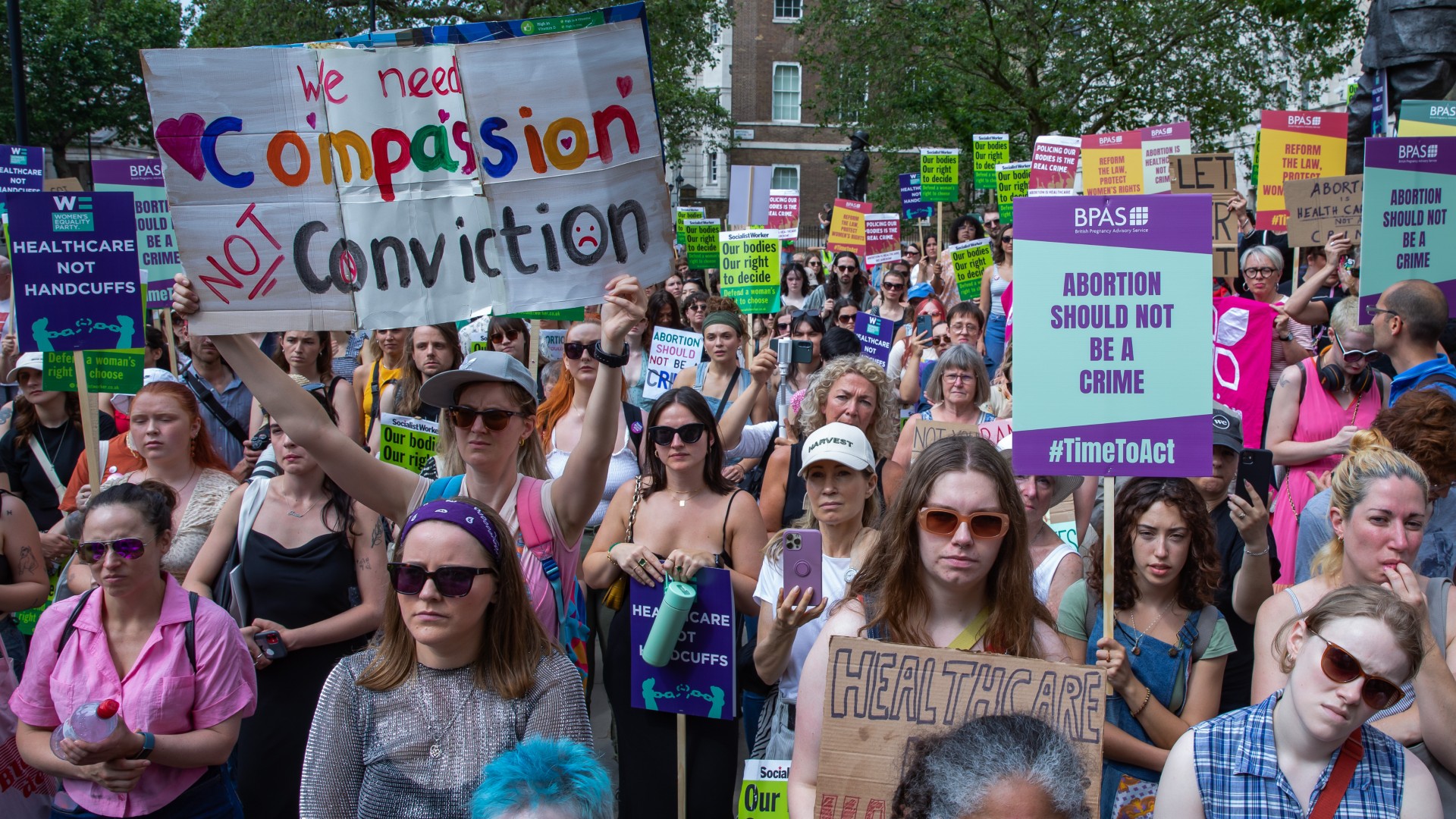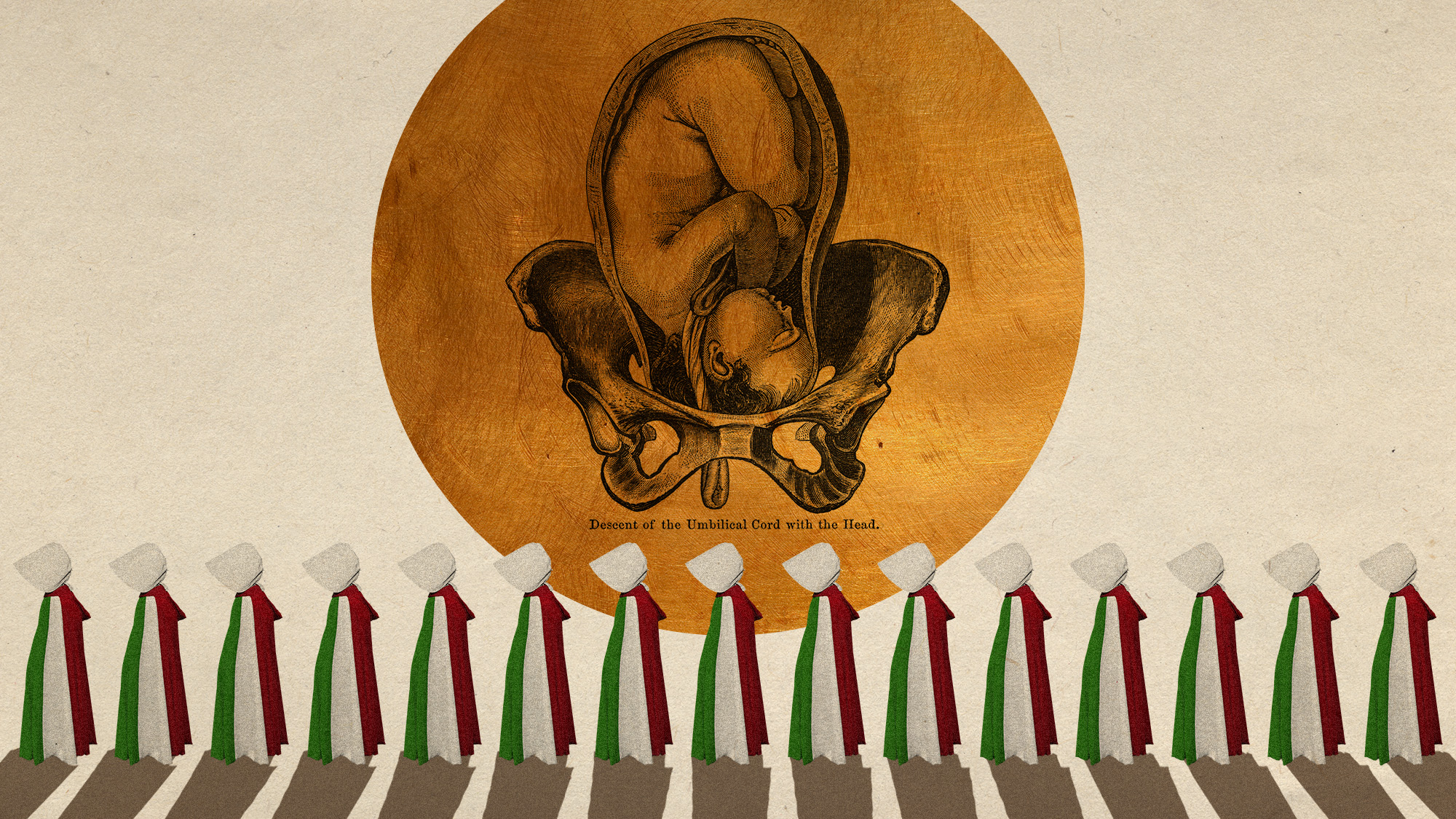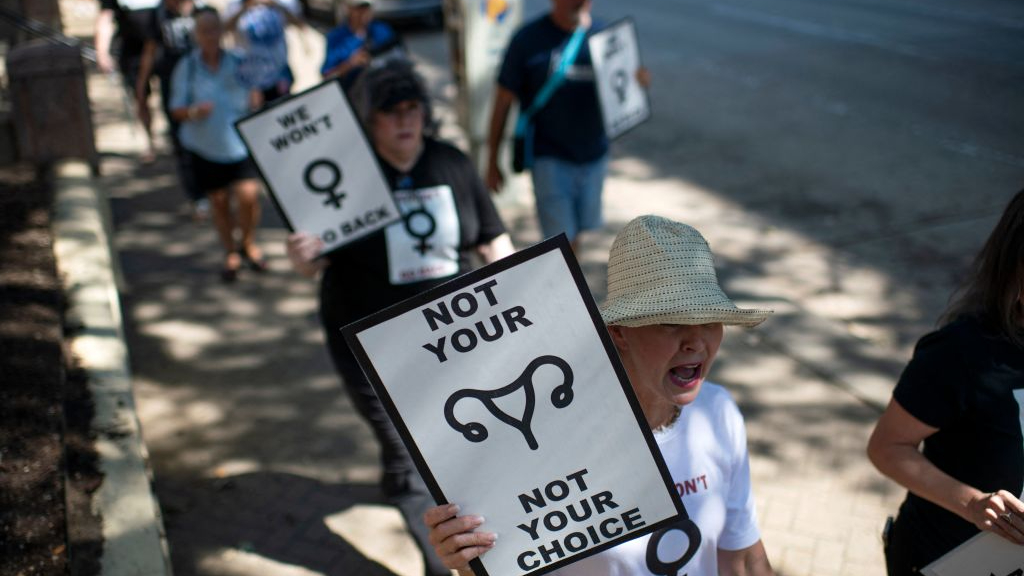Will abortion decide the 2024 presidential race?
After Dobbs and the midterm elections, the landscape has shifted


A free daily email with the biggest news stories of the day – and the best features from TheWeek.com
You are now subscribed
Your newsletter sign-up was successful
Did abortion stop the red wave? Republicans underperformed in the midterm elections — although control of the House of Representatives is still up for grabs as of this writing — and the backlash to the Supreme Court's Dobbs decision that struck down Roe v. Wade is probably a big reason why. While inflation was the top concern of voters at the polls, Politico reports, "about 60 percent of voters said they were dissatisfied or angry with the Supreme Court's decision."
For Democrats "that success almost certainly means abortion will remain a defining political issue as the 2024 presidential race looms on the horizon," Amelia Thomson-DeVeaux writes at FiveThirtyEight. What will that mean for access to abortion around the United States? And how will the issue shake out as the 2024 presidential election cycle gets underway? Here's everything you need to know:
Where was abortion on the ballot?
Voters weren't just voting for and against politicians. In five states — blue or blue-ish states like Vermont, California, and Michigan, as well as red states Montana and Kentucky — they also had a chance to weigh in directly on laws either expanding or limiting reproductive rights. In all five cases, they came down on the pro-choice side. The first three states approved measures to protect abortion rights, while Kentucky voters rejected an amendment that would declare no such right exists in that state's constitution —- and Montanans appear to have voted down the "Born-Alive Protection Act" that opponents said would have criminalized some health care providers.
The Week
Escape your echo chamber. Get the facts behind the news, plus analysis from multiple perspectives.

Sign up for The Week's Free Newsletters
From our morning news briefing to a weekly Good News Newsletter, get the best of The Week delivered directly to your inbox.
From our morning news briefing to a weekly Good News Newsletter, get the best of The Week delivered directly to your inbox.
Did abortion rights lose anywhere?
Not directly — though Vox points out that Republicans got enough votes to form a filibuster-proof supermajority in the Nebraska legislature. GOP legislators tried and failed to ban abortion earlier this year. Now they will "likely make it a priority in the coming legislative session."
More broadly, how did the issue affect the midterms?
"Abortion rights won the U.S. midterms," Quartz blared in a headline. That might be a slight overstatement — again, Republicans might still win control of the House of Representatives — but it does appear that the issue kept Democrats from getting swamped at the polls, as many expected.
But it's not just a federal-level matter, John Hendrickson writes at The Atlantic. Michigan is "a traditionally blue state that in recent years has turned more purple" but voters on Tuesday re-elected Democratic Gov. Gretchen Whitmer — and flipped its state legislature to Democratic control. Similarly, the issue had salience in Pennsylvania, where ardent pro-life Republican Doug Mastriano went down to defeat, and where Democrats may have won control of the state House of Representatives. Dr. Mehmet Oz lost his race in Pennsylvania against John Fetterman for an open U.S. Senate seat after asserting that "local political leaders" should have a say in reproductive choices. Hendrickson's conclusion: "This was an abortion election."
What do pro-lifers have to say about all this?
They're doubling down. Many Republicans seemed to shy away from a pro-life stance after Kansans in August resoundingly rejected a measure that would have allowed the state to ban abortion. (In Arizona, GOP candidate Blake Masters famously scrubbed his election website of abortion references after the vote.) Axios reports that one GOP-friendly group, Susan B. Anthony Pro-Life America, "slammed Republican candidates who distanced themselves from abortion bans and failed to clearly communicate their stance on the issue." The group said in a memo that Republican candidates can win "if they define their opponents as abortion extremists" who favor unlimited access to abortion.
A free daily email with the biggest news stories of the day – and the best features from TheWeek.com
But the issue could divide Republicans going forward, The New York Times reports. Social conservatives in the GOP remain "determined to advance their cause" but establishment Republicans are now "more inclined to see debates over abortion restrictions as a political liability." The numbers may work against the pro-life activists, though: The Public Religion Research Institute notes that just 8 percent of Americans think abortion should be banned in all cases.
What does this mean for 2024?
For most of the last 50 years, it was mostly pro-life Republican voters who were energized by the abortion issue. That's changed. The Atlantic's Tim Alberta points out that of voters who prioritized abortion during the 2022 midterms, three-quarters supported Democrats. "This is a direct result of the Dobbs ruling," Alberta writes, and it was enough to overcome strong voter concerns about inflation. For the future, that means "Democrats now have a blueprint for turning out the vote in a punishing political environment."
Back at FiveThirtyEight, Thomson-DeVeaux says that in 2024 you'll probably see more Democrats put abortion rights at the front and center of their campaigns. (That would be a shift from Clinton-era "safe, legal, and rare" messaging that tried to blur the issue to avoid offending pro-life voters.) The success of pro-choice efforts in 2022 means "you're going to be hearing a lot more about it as the 2024 presidential campaign creaks into gear."
Joel Mathis is a writer with 30 years of newspaper and online journalism experience. His work also regularly appears in National Geographic and The Kansas City Star. His awards include best online commentary at the Online News Association and (twice) at the City and Regional Magazine Association.
-
 Why is the Trump administration talking about ‘Western civilization’?
Why is the Trump administration talking about ‘Western civilization’?Talking Points Rubio says Europe, US bonded by religion and ancestry
-
 Quentin Deranque: a student’s death energizes the French far right
Quentin Deranque: a student’s death energizes the French far rightIN THE SPOTLIGHT Reactions to the violent killing of an ultraconservative activist offer a glimpse at the culture wars roiling France ahead of next year’s elections
-
 Secured vs. unsecured loans: how do they differ and which is better?
Secured vs. unsecured loans: how do they differ and which is better?the explainer They are distinguished by the level of risk and the inclusion of collateral
-
 Is the UK about to decriminalise abortion?
Is the UK about to decriminalise abortion?Talking Point A rise in prosecutions has led Labour MPs to challenge the UK's abortion laws
-
 Abortions rise to record level 'due to cost of living'
Abortions rise to record level 'due to cost of living'Speed Read Low-income women face 'heart-breaking' choice, warns abortion charity chief
-
 Italian senate passes law allowing anti-abortion activists into clinics
Italian senate passes law allowing anti-abortion activists into clinicsUnder The Radar Giorgia Meloni scores a political 'victory' but will it make much difference in practice?
-
 France enshrines abortion rights in constitution
France enshrines abortion rights in constitutionspeed read It became the first country to make abortion a constitutional right
-
 Texas judge approves abortion of nonviable fetus, drawing threat from Texas attorney general
Texas judge approves abortion of nonviable fetus, drawing threat from Texas attorney generalSpeed Read Kate Cox petitioned to terminate her doomed pregnancy, salvaging her uterus and the option to try for more children
-
 Ohio voters defeat GOP measure to raise referendum threshold
Ohio voters defeat GOP measure to raise referendum thresholdSpeed Read
-
 Ohio is voting on whether to raise the bar on referendums — and a popular abortion amendment
Ohio is voting on whether to raise the bar on referendums — and a popular abortion amendmentSpeed Read
-
 Abortion law reform: a question of safety?
Abortion law reform: a question of safety?Talking Point Jailing of woman who took abortion pills after legal limit leads to calls to scrap ‘archaic’ 1861 legislation
